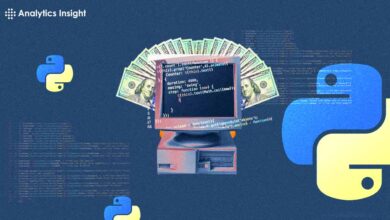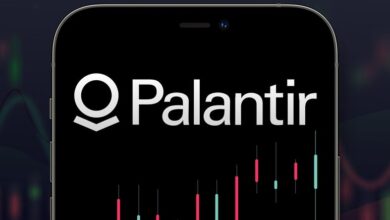Why It’s overlooked and how to start

The role of Data and AI in the mining sector has now been well-documented across media and technical publications. While there are high-impact areas for driving growth, such as enhanced data-driven decision-making, predictive maintenance, resource optimization, safety improvements and tapping into data to ensure compliance with ESG objectives, data and AI are not being harnessed fully to drive business objectives.
Mining projects hold troves of data – from geological to geospatial, exploration, production and environmental project data, to safety and financial information – data sharing and analysis with the use of AI could significantly enhance operational efficiency and decision-making. However, data remains overlooked, undervalued and untapped.
Considering modern mining uses a triple bottom line measure of success, overall business success could be at risk, not just profits, if data and AI are not leveraged.
There are several factors to this.
Economic Cycle
First and foremost is the economic cycle for a miner’s resource category. If the particular resource index is significantly down on its 52-week high, free cash will be scarce, limiting investment in emerging and unproven technology. In the current political landscape of two wars in flight and a world economy in recovery from the pandemic, precious metals are up 10 – 15%, whilst critical minerals are down 40 – 50%. In this context, you would expect gold miners to consider investing, while lithium miners would struggle to justify staffing levels, let alone test new AI technology.
Traditional Mindset & Cultural Shift
The mining industry has traditionally been focused on physical assets and tangible resources, such as machinery, equipment, and mineral reserves. Data has not been viewed as a critical asset or a source of competitive advantage, leading to an under-appreciation of its value. This factor essentially underpins the above Economic Cycle factor; if it was seen as a source of competitive advantage, the economic cycle would be less significant.
Shifting towards a data-driven culture requires buy-in and commitment from leadership as well as cultural and organizational change throughout the company. Resistance to change, lack of awareness or understanding of the value of data analytics, and entrenched processes and workflows can impede adoption and implementation efforts. Building a culture that values data-driven decision-making, encourages experimentation and innovation, and rewards data-driven successes is essential for long-term success.
Skills and Expertise
Adopting Data & AI requires a rare intersection of skill sets, expertise in data science, statistics, machine learning, and domain knowledge of the mining industry. Bridging the gap between technical experts and domain experts within the organization is essential for digital-driven decision-making and operation.
Uncertainty in ROI
Implementing data & AI initiatives can require significant upfront investment in technology infrastructure, software platforms, talent acquisition, and training. Demonstrating a clear return on investment (ROI) and business value can be challenging, especially in the short term. Miners must prioritize projects that align with strategic objectives and deliver tangible outcomes. A shining example is BHP Billiton through its BHP Ventures arm. reflecting the board’s intent on emergent technologies and, more importantly, data as critical to their future.
Refining
Data is like raw mineral ore. It has little direct value until it is refined. AI is like a refinery. It, too, has little direct value unless it is fed raw material, trained to process it meaningfully, and the processed material sold. Data and AI eventually yield actionable insights that, when acted upon, drive real business value.
As such, data and AI must be embedded in people and processes before they are productive. They are undervalued because the value chain from raw data to actioned insights is not immediate but involves several steps of processing. As the processing is virtual and not physical, cultural unfamiliarity and uncertainty create friction. Few companies have seriously adopted data-driven methods or embedded AI in their processes, so well-known stories of value are far between, which leads to them being overlooked.
Despite these challenges, technologies emerging within the mining industry aimed at facilitating data sharing and collaboration show promise. For example, blockchain technology is being explored as a way to securely and transparently share data across mining supply chains while preserving data integrity and confidentiality. Additionally, industry collaborations and partnerships may help address some of the barriers to data sharing by establishing common standards, protocols, and governance frameworks.
Companies that can effectively leverage their data assets will likely gain significant competitive advantages in areas such as exploration efficiency, operational optimization, safety improvements, and sustainability initiatives.
These diamonds in the rough just need a little cleaning, cutting and polishing to be treasure troves of insights leading to lower costs and higher yields.



